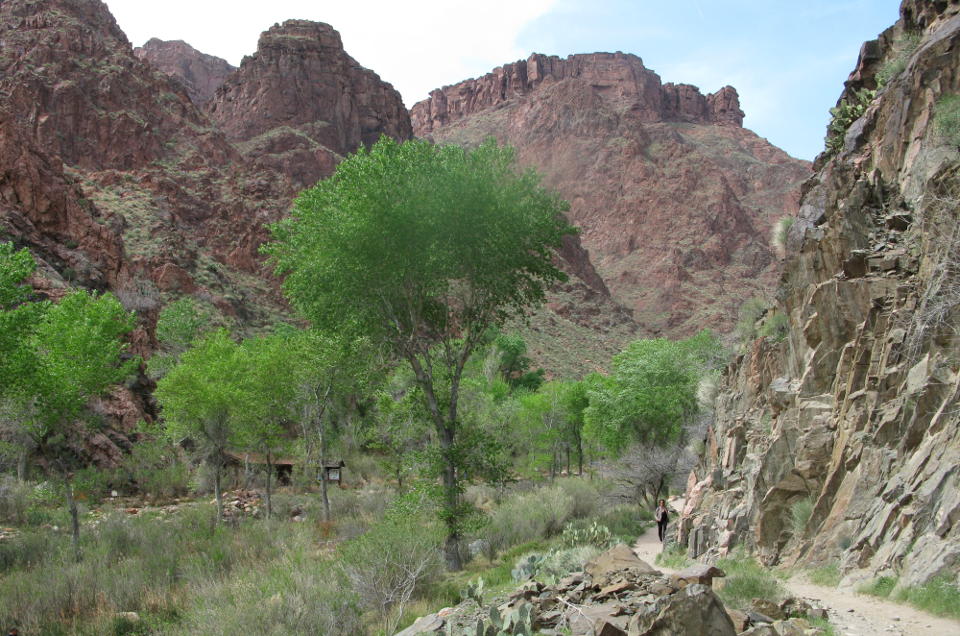News Release
You are viewing ARCHIVED content published online before January 20, 2025.
Please note that this content is NOT UPDATED, and links may not work. For current information,
visit https://www.nps.gov/aboutus/news/index.htm.

|
Subscribe
|
Contact: Perri Spreiser, 928-638-7609
Contact: Kari Cobb, 928-638-7958
Grand Canyon, AZ - Grand Canyon National Park has received confirmation that a bat collected at Phantom Ranch on August 31, 2018 tested positive for rabies. The rabies positive bat did not come in contact with any visitors. Recently, park users have reported an increase in human-bat interactions, including seeing them more often near the river. All individuals who have had physical contact with a bat have been advised to seek medical attention and be assessed for appropriate medical treatment.Rabies is preventable if medical treatment (called post-exposure prophylaxis or PEP) is given following an exposure to a rabid animal, but is almost always fatal if PEP is not given prior to the development of symptoms.
Rabies is a serious disease that can kill both animals and humans. Humans can contract rabies through contact with an infected animal's saliva, such as a bite or scratch. All mammals are susceptible to rabies, including bats, skunks, and foxes. Possible rabies infections should be considered in animals that exhibit unusual or aggressive behavior or that are not afraid of humans.
Grand Canyon National Park would like to remind visitors about the following things they can do to protect themselves from rabies:
- Never approach or touch wildlife. Please observe and appreciate wildlife from a safe distance. If you see sick or erratic behaving wildlife, notify a park employee or call the park's 24-hour emergency communications center at 928-638-7805.
- In areas where pets are allowed, make sure that pets are vaccinated and kept on a leash at all times.
- Teach children to tell you if they are bitten or scratched by an animal.
- Anyone who has had contact with a bat or other wild animal in the park should notify a park employee as soon as possible. You should consult with your doctor in the event you have contacted an animal thought to be rabid.
- While on a river trip take extra precaution and sleep in a tent for protection.
Grand Canyon National Park is working with the National Park Service Office of Public Health and Wildlife Health Branch to protect the health and safety of visitors and wildlife in the park by testing any sick or dead wildlife. The park has additional information available to visitors regarding the bats of Grand Canyon, bat research, and zoonotic diseases.
Last updated: September 24, 2018
